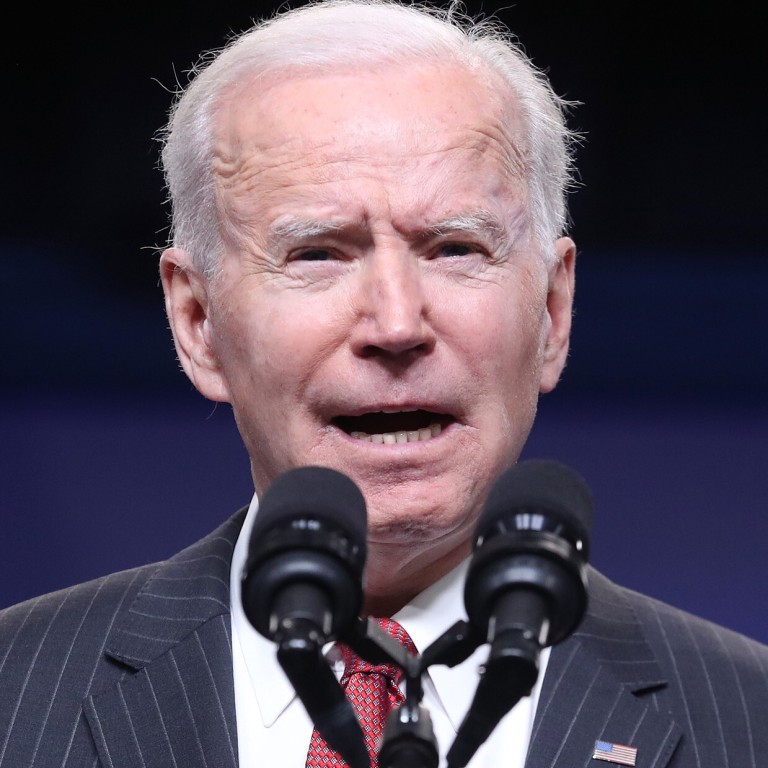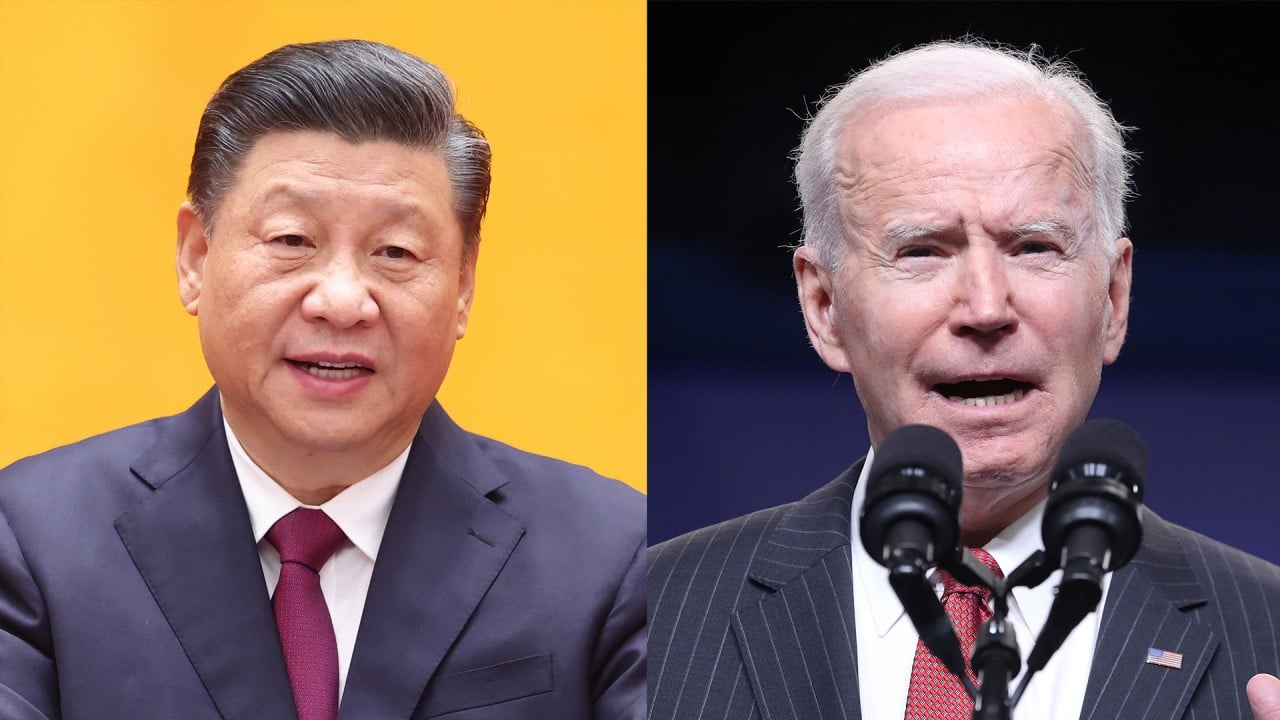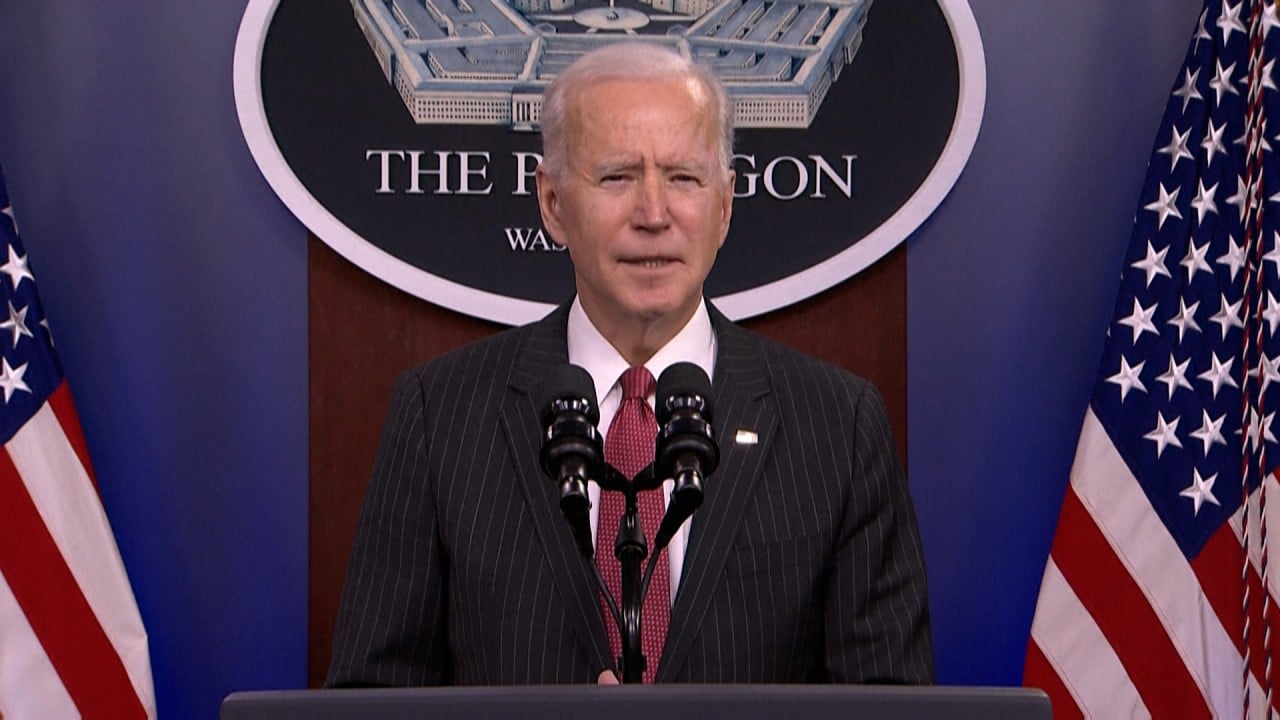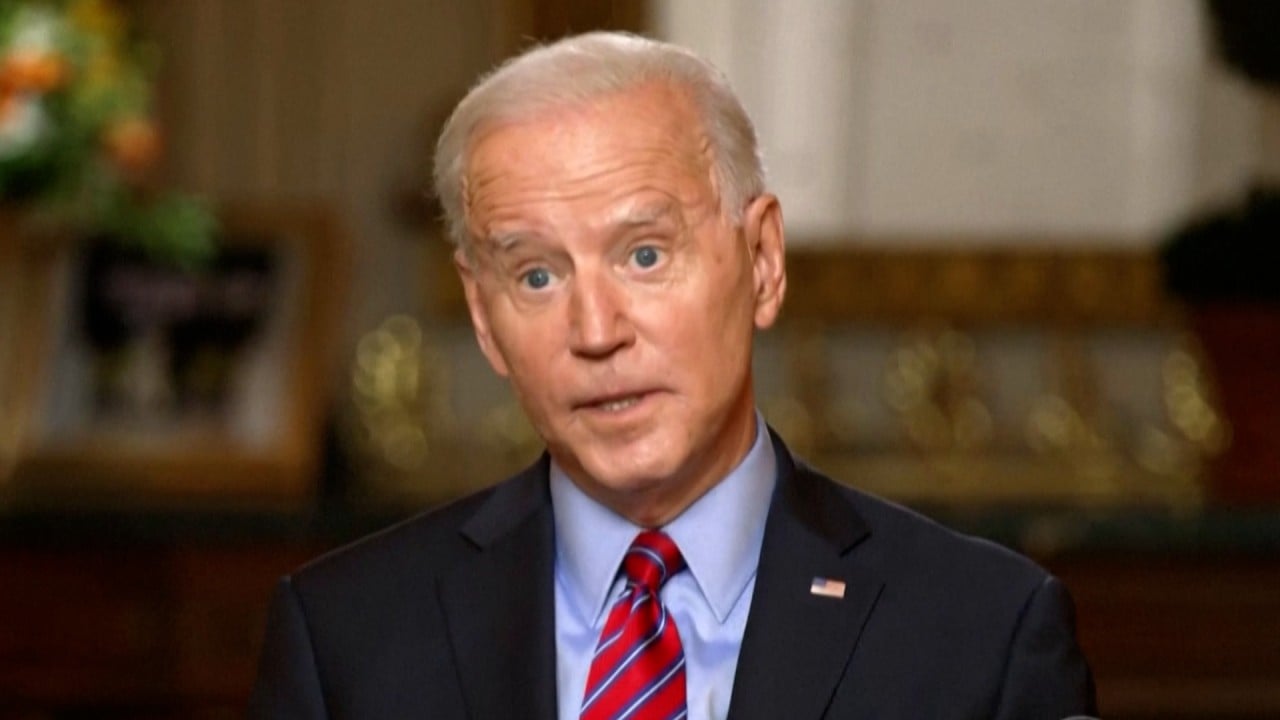
US-China confrontation would be ‘disaster’, Xi Jinping tells Joe Biden in first call
- White House says Biden raised trade, human rights and Indo-Pacific region in first call to Beijing since his inauguration
- Leaders exchange Lunar New Year greetings in goodwill call aimed at reshaping US-China relations
The call, held on the eve of the Lunar New Year, revealed the gulf of tensions lingering between the major powers, as Biden pressed Xi on issues of trade, human rights and the Indo-Pacific region. Xi pushed back, describing Taiwan, Hong Kong and Xinjiang as China’s “internal affairs”, and called for the resumption of dialogue between the countries, according to statements from both sides.
“Cooperation is the only correct choice for the two nations. Cooperation can help the two nations and the world to accomplish big things, while confrontation is definitely a disaster,” Xi was quoted as saying by state-run news agency Xinhua.
“China and US will have different views on certain issues, and it is important for them to treat each other with respect and equally, and properly manage the differences in constructive manner,” he added.

00:54
US-China confrontation would be ‘disaster’, Xi says in first phone call with Biden
Xi said a resumption of dialogue was needed to avoid misjudgments and to differentiate those disputes which could be contained. He called on Washington to be cautious in its handling of issues related to China’s sovereignty.
“China and the US have different views on various issues, but the key is mutual respect, equal treatment and properly managing and handling them in a constructive manner,” he said.
“Our foreign ministries can have in-depth communication on a wide range of bilateral, international and regional issues, and the two sides’ economic, financial, law enforcement and military departments can also increase their exchanges.”
Biden launches Pentagon task force to review China strategy and operations
The White House statement said Biden shared his greetings and well wishes with the Chinese people on the occasion of the Lunar New Year. He also “affirmed his priorities of protecting the American people’s security, prosperity, health and way of life, and preserving a free and open Indo-Pacific”.

00:41
US President Joe Biden orders new Pentagon task force to review China strategy
The White House said Biden had “underscored his fundamental concerns about Beijing’s coercive and unfair economic practices, crackdown in Hong Kong, human rights abuses in Xinjiang and increasingly assertive actions in the region, including toward Taiwan”.
The two leaders exchanged views on countering the Covid-19 pandemic, as well as the shared challenges of global health security and climate change. Biden also raised cooperation on preventing weapons proliferation, an issue left off the Chinese read-out of the call and a likely reference to the US’ seeking Chinese cooperation on constraining North Korea’s nuclear weapons programme.
China-US relations are too important to leave to Xi and Biden
Biden committed to pursuing “practical, results-oriented engagements when it advances the interests of the American people and those of our allies”, according to the White House.
Analysts said the phone call could not unravel the series of prickly issues that had plunged relations between the two countries to their lowest level in decades.
Shi Yinhong, professor of international relations at Renmin University, said the US had touched on all of the areas that China considered its “bottom lines”, and that he expected Biden to continue to respond to bipartisan calls in Congress against China.
“Of course, a resumption of exchanges is definitely good, but the majority of the conversation was sharp confrontation, albeit more polite and civil now that Trump is no longer in office,” he said.
“There is space for cooperation, such as on climate change, and while that is positive, compared to the confrontation and fighting between the countries, it is far from being significant. How can one phone call resolve any of these problems?”

01:08
US President Joe Biden foresees ‘extreme competition’ with China
Cui Lei, an associate research fellow at the China Institute of International Studies, pointed out that Trump and Xi similarly had conversations around the Lunar New Year, but they evidently had not signalled a strengthening of relations.
“In the early days of Trump’s tenure, he also had close interactions with Xi during the Lunar New Year and his granddaughter even offered new year’s greetings in Chinese over video, which gave people high hopes for bilateral relations, but in the end they were still people going their separate ways,” he said.
“Without the support of common interests and ideas, the relationships between heads of states can only be a tree without a root, water without a source.”
In an interview with CBS aired on Sunday, Biden said there was no reason not to hold a phone call with Xi. The two countries “need not have a conflict, but there’s going to be extreme competition”, he said.
In his first foreign policy address last week, Biden called China “the most serious competitor” for the US and pledged to “confront China’s economic abuses, counter its aggressive, coercive actions, and push back on China’s attack on human rights, intellectual property and global governance”.



